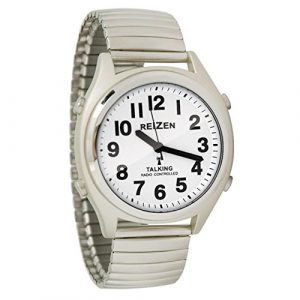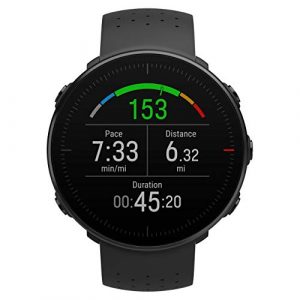If you want to stay consistent in meeting your health goals, consider using options like Apple Fitness+ to stay active with friends and family—and be sure to pick physical activities that you actually enjoy doin Smartwatches are often purchased to encourage yourself to be healthier and to help track stress.
A subject, who was a highly stressful person, bought a stress reducing watch to monitor her stress level. Stress monitoring is a function that the watch offers, yet this particular morning, it was hard to determine whether having that data really helps.
Out of morbid curiosity, she mashed some buttons until she could see my body’s stress level: The Garmin calculates this from my heart rate, blood oxygen, and activity levels, and scales my stress from 1-100. My stress level is (of course) sitting at a 92, so I follow the watch’s breathing prompts that aim to lower my heart rate and anxiety.
Don’t get me wrong – I love my little wrist computer. I enjoy the pings and dings that indicate I’ve met my step goal or that congratulate me for actually having worked out for 30 minutes.
Beware the Smartwatch: Hypochondria in Smartwatch Users
Everyone has heard about hypochondria, and everyone seems keen to weigh in on the issue. The truth is that health anxiety, properly known as hypochondria, is a really popular subject online and has been for ages. There are endless Reddit threads, tweets, and a shared cultural knowledge that googling any minor physical symptoms will likely result in a self-diagnosis of cancer.
Adding fuel to the fire is smartwatches. They’re a newer technology, and although jam-packed with tech, their heavily marketed features, like Apple or Garmin’s heart monitoring systems, just aren’t as advanced as professional equipment is yet—and that’s exactly why people with with heart issues that cause palpitations or other abnormalities including atrial fibrillation (AF) may be at the highest risk for developing symptoms of health anxiety from wearing a smartwatch. heart issues that cause palpitations or other abnormalities including atrial fibrillation (AF) may be at the highest risk for developing symptoms of health anxiety from wearing a smartwatch.
One published report found that a woman’s smartwatch gave her 55 AF warnings over one year. A closer evaluation of the watch’s data found that its EKG system may have been receiving inconclusive data but still interpreting that data falsely as a health alert. This may have contributed to her being diagnosed by a psychologist with hypochondria. Data collected from her smartwatch showed that the woman was checking herself for heart abnormalities almost three times a day, precisely 916 times over the course of just one year.
Many smartwatches offer monitoring systems that detect stress and offer breathing prompts to lower your heart rate and help you relax. You may find this option to be a useful tool, but if tracking your vital signs this closely feels overwhelming, then ditch it. When it comes to EKG readings and blood O2 measurements, those who are healthy probably don’t need to check this data too often. If you find yourself compulsively checking for heart or circulatory abnormalities, try disabling these features; or better yet, talk to a mental health professional, if you’re worried you have health anxiety.
To shop Maba Watches click the link: mabawatches.com




Tired of the usual wristwatches you have to wear every day when you go to the office? Tired of the everyday look of your wristwatches and are you sad because you can’t do anything with it but see the time? Well, even the most expensive wristwatches can show you the days of the week at the most.
Yes, you want to do a lot with your wristwatch and that is very understandable. So, what do you do when you get hours doing a lot more than just giving time?
Yes, you can have hours that tell more than just time, and you can do a lot from MabaWatches.com.
The era of smartwatches
Smartwatches from MabaWatches.com are a revolution in the world of wristwatches. If you have a touch watch, it will regularly check your watch every time your phone receives an SMS or a call. There is a longer battery life than any other touch screen device you own, and of course, the comfort in your life will improve dramatically. Touch screen watches provide many benefits and can be very gentle when you wear them. This increases the style quotient by a few degrees and makes the wearer look cooler. Let’s examine some of the features of mabawatches.com smartwatches and what makes them special.
Usability features have been added
Since you can now “touch” it to make it work, it’s very easy to play around with detailed options, such as choosing your song, reading text, or turning up the volume thanks to MabaWatches.com.
The ability to synchronize with other devices
Yes, synchronize important information with your other electronic devices, including tablets and other smartphones. What’s more, iOS and Android are mainly touchscreen operating systems. It is used mostly on phones with touch screens and works better when used on it. So, if the more advanced OS is to be used for small portable devices like the clock, it has to be a touch watch. It also helps to synchronize the watch with other devices that use the same OS thus data sharing can be made much easier and faster.
Comfort has been added
The added convenience this watch provides isn’t limited to the fact that you don’t have to press physical buttons to do things on it. The fact that so many apps can now be used on your watch is a very convenient factor. For example, if you are a sports person, the biggest sob imaginable from MabaWatches.com is not having to hold your phone to listen to songs or check your running speed.




Tired of the usual wristwatches you have to wear every day when you go to the office? Tired of the everyday look of your wristwatches and are you sad because you can’t do anything with it but see the time? Well, even the most expensive wristwatches can show you the days of the week at the most.
Yes, you want to do a lot with your wristwatch and that is very understandable. So, what do you do when you get hours doing a lot more than just giving time?
Yes, you can have hours that tell more than just time, and you can do a lot from MabaWatches.com.
The era of smartwatches
Smartwatches from MabaWatches.com are a revolution in the world of wristwatches. If you have a touch watch, it will regularly check your watch every time your phone receives an SMS or a call. There is a longer battery life than any other touch screen device you own, and of course, the comfort in your life will improve dramatically. Touch screen watches provide many benefits and can be very gentle when you wear them. This increases the style quotient by a few degrees and makes the wearer look cooler. Let’s examine some of the features of mabawatches.com smartwatches and what makes them special.
Usability features have been added
Since you can now “touch” it to make it work, it’s very easy to play around with detailed options, such as choosing your song, reading text, or turning up the volume thanks to MabaWatches.com.
The ability to synchronize with other devices
Yes, synchronize important information with your other electronic devices, including tablets and other smartphones. What’s more, iOS and Android are mainly touchscreen operating systems. It is used mostly on phones with touch screens and works better when used on it. So, if the more advanced OS is to be used for small portable devices like the clock, it has to be a touch watch. It also helps to synchronize the watch with other devices that use the same OS thus data sharing can be made much easier and faster.
Comfort has been added
The added convenience this watch provides isn’t limited to the fact that you don’t have to press physical buttons to do things on it. The fact that so many apps can now be used on your watch is a very convenient factor. For example, if you are a sports person, the biggest sob imaginable from MabaWatches.com is not having to hold your phone to listen to songs or check your running speed.




Tired of the usual wristwatches you have to wear every day when you go to the office? Tired of the everyday look of your wristwatches and are you sad because you can’t do anything with it but see the time? Well, even the most expensive wristwatches can show you the days of the week at the most.
Yes, you want to do a lot with your wristwatch and that is very understandable. So, what do you do when you get hours doing a lot more than just giving time?
Yes, you can have hours that tell more than just time, and you can do a lot from MabaWatches.com.
The era of smartwatches
Smartwatches from MabaWatches.com are a revolution in the world of wristwatches. If you have a touch watch, it will regularly check your watch every time your phone receives an SMS or a call. There is a longer battery life than any other touch screen device you own, and of course, the comfort in your life will improve dramatically. Touch screen watches provide many benefits and can be very gentle when you wear them. This increases the style quotient by a few degrees and makes the wearer look cooler. Let’s examine some of the features of mabawatches.com smartwatches and what makes them special.
Usability features have been added
Since you can now “touch” it to make it work, it’s very easy to play around with detailed options, such as choosing your song, reading text, or turning up the volume thanks to MabaWatches.com.
The ability to synchronize with other devices
Yes, synchronize important information with your other electronic devices, including tablets and other smartphones. What’s more, iOS and Android are mainly touchscreen operating systems. It is used mostly on phones with touch screens and works better when used on it. So, if the more advanced OS is to be used for small portable devices like the clock, it has to be a touch watch. It also helps to synchronize the watch with other devices that use the same OS thus data sharing can be made much easier and faster.
Comfort has been added
The added convenience this watch provides isn’t limited to the fact that you don’t have to press physical buttons to do things on it. The fact that so many apps can now be used on your watch is a very convenient factor. For example, if you are a sports person, the biggest sob imaginable from MabaWatches.com is not having to hold your phone to listen to songs or check your running speed.